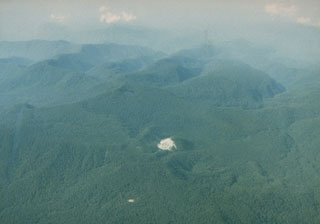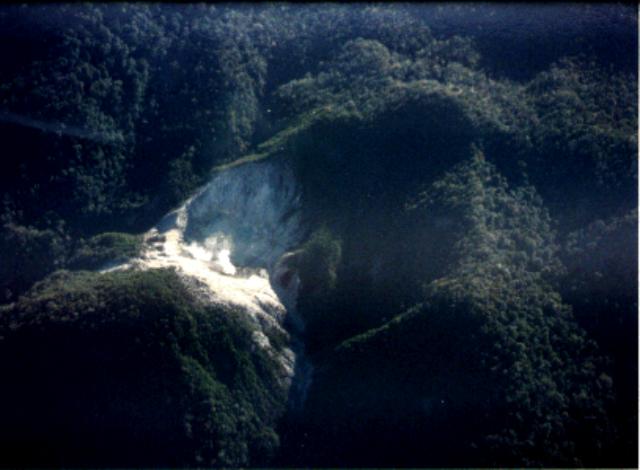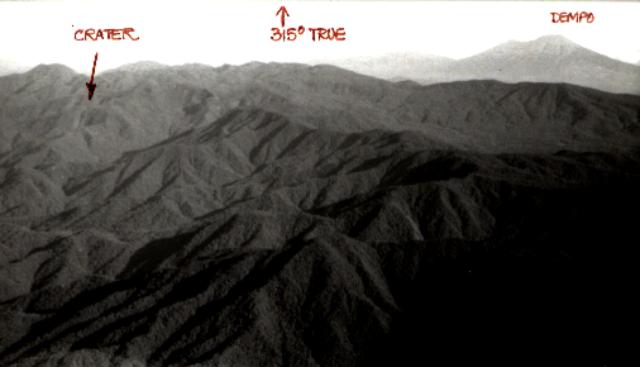Report on Patah (Indonesia) — September 1989
Scientific Event Alert Network Bulletin, vol. 14, no. 9 (September 1989)
Managing Editor: Lindsay McClelland.
Patah (Indonesia) Photos and more precise location
Please cite this report as:
Global Volcanism Program, 1989. Report on Patah (Indonesia) (McClelland, L., ed.). Scientific Event Alert Network Bulletin, 14:9. Smithsonian Institution. https://doi.org/10.5479/si.GVP.SEAN198909-261231
Patah
Indonesia
4.257°S, 103.306°E; summit elev. 2836 m
All times are local (unless otherwise noted)
Savill's photograph (figure 1) shows a fresh-appearing feature emitting two small gas plumes in an otherwise heavily forested area. Careful comparison of his panoramic view of the region (figure 2) with maps at scales of 1:250,000 (Manna quadrangle, BAKOSURTANAL, 1986) and 1:500,000 (Tactical Pilotage Chart M-10CG, British Military Survey, 1971) places the crater ~8 km WNW of the position given in 14:5. Map data indicate that vent's revised position is at ~2,300 m altitude, roughly 6 km SSE of the summit of Gunung Patah (Zen, 1973). Savill reports that clouds have prevented observations of the vent during subsequent overflights.
Geological Summary. Patah is a heavily forested, dissected Quaternary volcano SE of Dempo volcano. The age of its latest eruptions is not known, although on 1 May 1989 a possible new 150-m-wide crater with active fumaroles was observed by a cargo aircraft pilot in a heavily forested area on the side of a small cone about 3 km SE of Gunung Patah. The exact date of its formation, and its geologic relationship to Patah are uncertain. A crater lake at the summit of another peak, Bukit Belirang (Sulfur Hill), is located 1.5 km S of the fumaroles.
Information Contacts: M. Savill, Worthing, UK.



